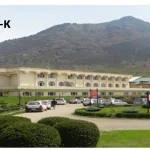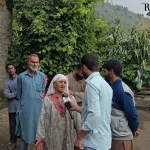Owing to the catastrophic damage already done to the environment through the indiscriminate use of chemical fertilizers and plant protection chemicals, the government has now decided to shift towards an alternate approach; an approach which promotes nature based sustainable systems of faming and that is based on enhancing the usage of on-farm made natural farming inputs to reduce dependency on externally purchased inputs and reduction of input costs. The broader objective is to improve soil health and conserve biodiversity. To promote Natural Farming, the government has started a National Mission on Natural Farming (NMNF), the details of which are elaborated as under:
Budgetry Provision
The NMNF has been launched as a standalone, centrally sponsored scheme under the Department of Agriculture & Farmers’ Welfare (DA&FW), Union Ministry of Agriculture & Farmers’ Welfare, with an outlay of Rs 2,481 crore (Rs 1,584 crore from the Union government and Rs 897 crore from the states) for a period of three years.
No. and Area
In the next two years, NMNF will be implemented in 15,000 clusters in Gram Panchayats, which are willing and reach 1 crore farmers and initiate Natural Farming (NF) in 7.5 lakh ha area. Each cluster will be of 50 hectares with 125 farmers willing to adopt Natural Farming practices initially. Preference will be given to areas having prevalence of practicing NF farmers, SRLM/ PACS/FPOs, etc. Further, need-based 10,000 Bio-input Resource Centres (BRCs) will be set-up to provide easy availability and accessibility to ready-to-use NF inputs for farmers. Overall 18.75 lakh trained willing farmers will prepare inputs like Jeevamrit, Beejamrit, etc. by using their livestock or procure from BRCs.
Administrative set up
At the national level, there is a seventeen member National Steering Committee (NSC) headed by Hon’ble Minister of Agriculture and Farmers’ Welfare, GoI in the capacity of chairman and also include Agriculture minister of four states (on rotation basis), two practicing NF farmers. The committee can co-opt technical/field experts from the central/state institutions agencies or research organizations. Secretary DARE & DG ICAR is also the member of this committee. The NSC is the policy making body providing overall direction and guidance to the mission and monitor and review its progress and performance.
The NSC is assisted by a twelve member National Executive Committee (NEC) headed by Additional Secretary INM Division in the Department of Agriculture and Farmer Welfare (DA&FW) with three DDGs of ICAR (NRM, Extension & Education). At the DA&FW level, there is a National Advisory Committee (NAC) to advise on technical aspects and roll out of NMMNF. At the state level, there will be a State Level Executive Committee headed by Chief Secretary of the state. The states have to create a dedicate Natural Farming cell. There will also be a District level monitoring committee and a Block level implementation agency which will be supported by KVKs, Aus and local NF institutions.
Krishi Vigyan Kendras’ (KVKs)
As many as 425 Krishi Vigyan Kendras (KVKs) have been working on natural farming. Around 2000 Natural Farming Model Demonstration Farms shall be established at Krishi Vigyan Kendras (KVKs), Agricultural Universities (AUs) and farmers’ fields, and shall be supported by experienced and trained Farmer Master Trainers. The willing farmers will be trained in Model Demonstration Farms on the Natural Farming package of practices, preparation of NF inputs, etc. near their villages in KVKs, AUs and practicing NF farmers’ fields. Krishi Sakhis will also be trained in KVKs.
Role of Krishi Sakhis
Krishi Sakhis are supposed to play a major role in this mission. As the name denotes, they are young girls and farm women who have been given proper training and their skills have been updated. Krishi Sakhis have got get training on various modules in KVKs. on agro-ecological practices from land preparation to harvest, Organizing Farmer Field Schools (FFS), establishment and management of Seed banks, management of soil health, conservation of natural resources, organic and natural farming, Livestock Management, Integrated Farming systems, Basics of livestock management, Preparation and use of bio inputs and establishment of bio inputs. 30,000 Krishi Sakhis/Community Resource Persons (CRPs) (i.e. 2 Krishi Sakhis/CRPs per cluster) will be deployed for awareness generation, mobilization and handholding of willing farmers in the clusters.
A team of two Krishi Sakhis will have to mobilize 125 farmers who are willing to adopt natural farming and form a cluster on a cumulative area of 50 hectares. The 125 willing NF trained farmers will have to further train six more farmers ultimately resulting in 750 NF farmers per cluster. The Krishi Sakhis will have to do this activity at the start of each cropping season. This will further empower Krishi Sakhis to earn between 50,000 to 60,000 per month in the same pattern as some of them are getting under Mission Organic Value Chain Development for North Eastern Region (MOVCDNER). Selected KVKs across the country have also recently completed a five days training programme of Krishi Sakhis on Natural Farming.
Bio-input Resource Centers (BRCs)
Presently, the production and availability of various components required for natural farming cannot meet the actual requirement. To bridge this gap, Government will set up 10,000 needs based Bio-input Resource Centers across different Panchayats. The BRCs will produce and supply various microbial formulations of natural farming like Jeevamrit, Beejamrit, and natural preparations for insect pest and disease management. BRCs will involve farmers, farm women or collective groups in the production of bio-inputs using locally available resources, such as cow dung and urine. Farmers can earn income by producing and selling bio-inputs, and by adopting natural farming practices, they can also reduce their input costs and increase their yields. This will empower farmers by providing access to locally produced, organic inputs, reducing reliance on chemical fertilizers and pesticides.
The BRCs will serve as a one-stop shop for farmers seeking alternatives to chemical inputs, offering a range of bio-inputs. BRCs can be managed by farmers, farmer groups, or even civil society organizations (CSOs). The BRCs will also provide trainings, conduct demonstrations and workshops to help farmers adopt natural farming solutions and will play an important role in environmental sustainability by promoting practices that reduce pollution and conserve resources.
The central government will also give a financial aid up to Rs 10 lakh to identified farmers to set up the BRCs across the country. As far as quality control of the bio-inputs is concerned, the National Center for Organic and Natural Farming (NCONF) will develop standard production protocols along with Standard Operating Procedures (SOPs) and support in the form of training and then hand holding of stakeholders. The NCONF can also consider for voluntary certification of BRCs. The whole transition to this alternate system of farming will involve three phases:
- Seeding Phase: In this initial phase thrust will be upon building institutions at central and state level. MANAGE Hyderabad will be the knowledge partner for this. Krishi Vigyan Kendras’ will act as model centers for demonstration and training purpose. National center for Organic and Natural Farming will also be entrusted with capacity building of stakeholders as well as the certification of produce/products. Besides there will be state missions for on field implementation of the National Mission on Natural Farming.
- Execution Phase: In this phase focus will be on identifying champion farmers and local resource institutions. These champion farmers having expertise in natural farming will be involved as resource persons in Farmer Field Schools as demonstrators of all the technology related to natural farming and other sustainable practices.
- Extension Phase: In the extension phase, the natural farming mission will be grounded down to the grassroots level through 15000 clusters with each cluster having an area of 50 hectares. There will be proper certification of clusters and a network of rapid pesticide residue testing laboratories will be set up. The execution phase hand holding will also be done to ensure that local supply chains are developed and they flourish without any constraint.
(With inputs from the Regional Natural Farming, consultation and workshop at YSP UHF, Solan, H. P, the author can be reached at: [email protected])








